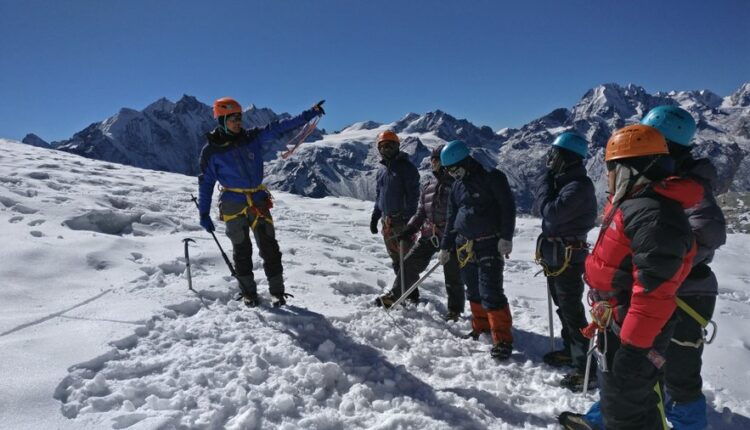ICIMOD and Kathmandu University, Nepal signed a Letter of Agreement (LoA) to build capacity among our regional partners on assessing cryosphere changes and the associated environmental and social risks. This agreement marks a significant milestone in our ongoing collaboration to enhance cryosphere research, monitoring and analysis, and to increase regional expertise in the field.
The collaboration, supported by the Government of Norway, will span two years and is set to produce an additional 12 young glaciologists by the end of the project cycle. In this new chapter, the programme will be seeking applicants from ICIMOD’s regional member countries for the academic year starting in August this year. There is also a provision for faculty exchange, where six relevant academic staff from RMCs will be invited to spend time at KU, collaborating with faculty and students there.
On-site observations are vital for gaining firsthand insights into the effects of climate change on glaciers. However, relevant agencies in the region do not have resources including skilled experts to address these risks, maintain updated data and carry out analysis to inform decision making. This is an irony for the region, which is also known as the Third Pole, with largest area under ice outside of the polar regions. The cryosphere components in the region are heavily impacted by climate change, resulting in increased disaster risks. The MS by Research in Glaciology program is targeted initiative to address this need for improving knowledge and understanding of cryosphere dynamics, including glaciers, snow, permafrost, and glacio-hydrology, and the impacts these changes have on the HKH region.
“Environmental experts specialising in glaciology is a continued need for the region as there are still only a handful of glaciologists from the region working in the region. I am looking forward to the new batch of students from the region to mentor and steer them towards the career in cryosphere science” said Professor Rijan Bhakta Kayastha (PhD), who will be coordinating the programme at KU.
ICIMOD and KU has an impressive history of collaboration, the HKH Cryosphere Monitoring Project (CMP), also funded by the government of Norway running from 2011 to 2019, supported 29 students out of 36 graduates, successfully strengthening the capacity of partner agencies in Nepal.
Kathmandu University remains a key partner in this endeavour, providing essential field lessons for young glaciologists. Together, we have conducted extensive research on glaciers such as Yala, Ponkar, and Rikha Samba in Nepal.
Activity will be supported by ICIMOD’s Strategic Group Reducing Climate and Environmental Risks, Action Area: Managing cryosphere and water risks and implemented by the Himalayan Cryosphere, Climate and Disaster Research Center (HiCCDRC), Department of Environmental Science and Engineering of the university.


Comments are closed.